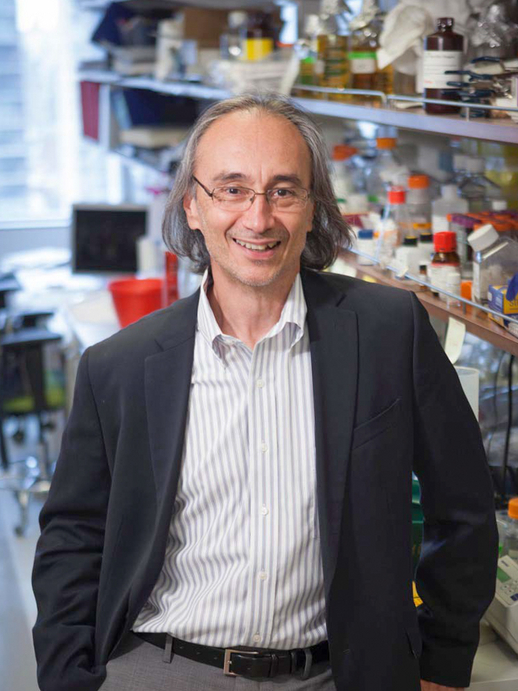John Blenis received his B.A. in Biochemistry at U.C. Berkeley, and moved with his mentor, Dr. Susan P. Hawkes to Michigan Molecular Institute, where he earned his PhD in Biochemistry from Michigan State University in 1983. That year he joined Professor Raymond Erikson’s laboratory for postdoctoral training at Harvard University. Dr. Blenis then moved to Northwestern Medical School in 1987 as an Assistant Professor. In 1989 he returned to Harvard Medical School where he remained until 2014. Currently, Dr. Blenis is the Anna-Maria and Stephen Kellen Professor of Cancer Research, the Associate Director of Basic Science and Director of the Pharmacology PhD program at Weill Cornell Medicine in New York City.
Dr. Blenis has made pioneering contributions to our understanding of signal transduction. He uncovered mechanisms of PI3K-mTOR-S6K and Ras-ERK/MAPK pathway signaling, arguably the most often altered signaling systems in cancer, set the conceptual framework for how they are organized and regulated, and identified and characterized therapeutic targets and inhibitors now in clinical trials. In the early days of cancer signaling, he discovered S6K and defined its regulation by mitogens and oncogenes. He demonstrated that S6K activation is dependent on PI3-kinase and sensitive to rapamycin, thus establishing it as the first component of what we now call the PI3K-mTORC1 pathway. He defined the canonical pathway for mTORC1 activation via PI3K, Akt, RHEB GTPase and tumor suppressor TSC2. More recently, he defined how mTORC1 and S6K regulate mRNA biogenesis, translation and cell metabolism, to promote cell growth and survival. Dr. Blenis also defined Ras-dependent regulation of ERK and RSK. He discovered that Raf, ERK, and RSK form a Ras-modulated kinase cascade, that ERK and RSK translocate into the nucleus, and that ERK and RSK signal duration and location are central to cell fate decisions. These fundamental discoveries were critical for understanding how ERK and RSK regulate gene expression, cell survival, migration and proliferation. Dr. Blenis continues to identify biomarkers, therapeutic targets, and drug resistance mechanisms that will enable future treatment strategies.




